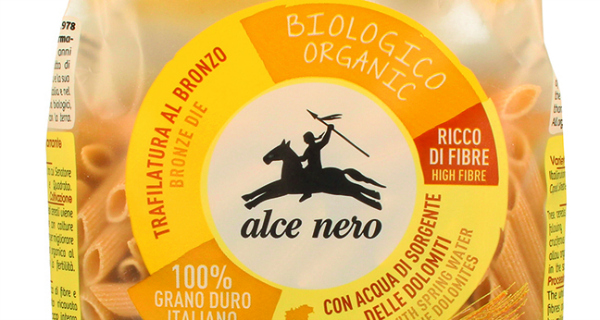
The organic pasta market is worth 100 million euro in Europe and recorded a growth of +11% in the last year. After its debut in Sweden in February 2016, Barilla Bio Pasta (Spaghetti, Conchigliette, and Penne Rigate) produced at the establishment in Caserta has made its appearance on supermarket shelves in eight other European countries, namely Norway, Switzerland, France, Belgium, Germany, Austria, Greece, and Finland (at a 30-40% higher price than the ‘classical’ pasta version, depending on the country). After a preliminary testing phase in 2015, in the club and e-commerce sector, Barilla Organic launched spaghetti, Penne, Rotini, and Elbows in the big retailers this year in the Usa, where 30% of the consumers claim to pay attention to buying food labelled as ‘organic’.
THE PIONEER OF ORGANIC PASTA – Alce Nero is the undisputed pioneer of Italian organic pasta. This company established its own chain of durum wheat and spelt from scratch in 1978. It first involved farmers from the hill country of the Marche region and later those around Bologna, so as to exploit marginal agricultural areas. Alice Nero’s marketing office emphasises that spelt is suitable for stony soils that are frequently lacking nutrients. Today, we mostly cultivate it in the hilly and mountainous areas of Emilia Romagna, Tuscany, Lazio, Apulia, and Basilicata. To us, innovation is closely linked to the quality of the raw material and the connection with the shareholder farmers. Hence the rediscovery of old varieties like Senatore Cappelli, which by nature contains from 2 up to 20 times more vanillin than other newer durum wheat varieties. Even though Barilla is the established market leader, it keeps expanding its product range with organic pasta to succeed in international markets with a convincing identity of a more sustainable and health-oriented company.
